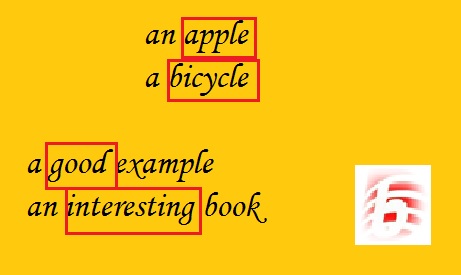a vs an in English Grammar
Understanding the distinction between a and an in English grammar can help English language users apply these articles correctly. A and an are both indefinite articles in the English language. Although they share this category, their usage and application vary. English language learners should be familiar with the two types of articles: definite and indefinite. A and an fall into the latter group. Knowing the proper usage of these articles is crucial, as they are fundamental grammar features.
What is A in English grammar?
The indefinite article a signifies “one” and is used before a noun, functioning as an adjective of number. For example, in the sentence “Janet ate a mango fruit today morning”, it is implied that Janet ate only one mango this morning. An essential rule regarding the use of the indefinite article a in English Grammar is that it should be used before nouns beginning with consonants, not vowels. The five vowels in the English language are a, e, i, o, and u. The indefinite article should only be used if the following noun begins with a consonant. Examples include “a boy”, “a girl”, and “a building”.
What is An in English grammar?
An is another indefinite article in the English language, and it should be used immediately before a noun that begins with a vowel, not a consonant. Proper usage of articles in the English language relies heavily on this rule. Many grammar errors result from incorrect use of articles. Examples of the indefinite article an in use include “an apple”, “an orange”, “an umbrella”, and “an ink bottle”. All the examples mentioned have words or nouns that start with a vowel.
Key Takeaways
- The indefinite article a implies “one” and is used before a noun, serving as an adjective of number.
- The indefinite article a is used before nouns beginning with consonants, not vowels.
- An is also an indefinite article in the English language and should be used before a noun that starts with a vowel, not a consonant.
Adjectives should also be considered when applying indefinite articles a and an, as demonstrated in the phrases “a good example” and “an interesting thought indeed”. In these examples, when the adjective begins with a vowel, an is used. Conversely, when the adjective starts with a consonant, even if the noun begins with a vowel, a is used, as in “a good example.”
